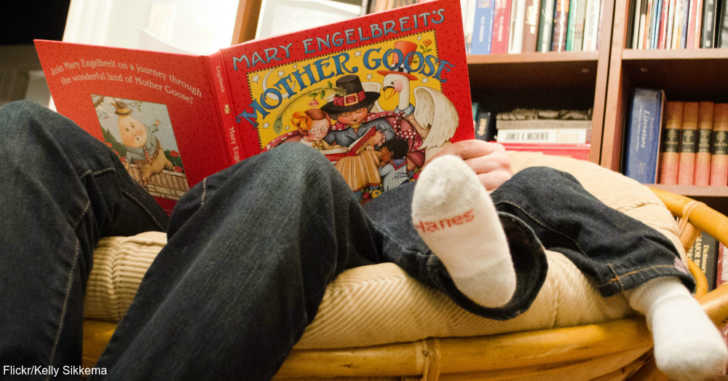This Is Why You Shouldn’t Stop Reading To Your Kids
We are never too old for bedtime stories.
How much do you think reading with your child impacts their ability to understand spoken and written language and to grasp cultural norms? You probably already know reading to little kids is kind of a big deal. It’s the only way they learn to read on their own, and it gives you the chance to talk about the issues of morality and good behavior often discussed in children’s books.
Most parents read to and with their tiny children, but how many of us continue once our kids are confident readers on their own? While it’s tempting to feel that children can enjoy books and comprehend them just as well without parental supervision once they can decipher full sentences, there are multiple benefits to continuing the story time habit throughout older childhood.
Even if it didn’t have benefits, we believe reading together at all ages would be entertaining and help build parent-child relationships. But if that isn’t enough, here is a lovely list of ways you’re aiding your child’s development by reading with them even after they are capable of reading on their own.

A report commissioned for publisher Scholastic found that while almost 90 percent of parents read aloud to their young children, one in five parents stopped reading to their children after age 9. The study also noted that these children would have preferred their story time to continue.
The reasons children gave for not wanting their parents to stop reading to them varied, but the main one appeared to be that it was a good opportunity to spend quality one-on-one time with a parent that might be otherwise hard to come by in busy modern lives. This is a key point in terms of children’s social development, as without this touch point, many children find it hard to get as much quality time with their parents.
Parents say that reading aloud benefits their children by giving daily exposure to spoken language, and helps them develop their own language skills. While conversation and general discourse are also important for this, reading aloud is likely to encourage wider vocabulary use, as well as ensuring a minimum level of spoken interaction in a given day.

Educationally, being read to allows older children to access literature that is beyond their current reading level, encouraging them to develop a sense of story and character. It also offers them the opportunity to discuss the ideas behind the stories and to investigate any questions they raise. This is a good foundation for critical thinking and reading. It also allows parents to know what issues their children are being exposed to and becoming interested in without having to interfere with the child’s burgeoning independence.
We’re never too old for stories, but books at bedtime are even more vital for developing brains.
Find out more about how reading at bedtime benefits your child’s literacy.
SKM: below-content placeholderWhizzco for CRH

